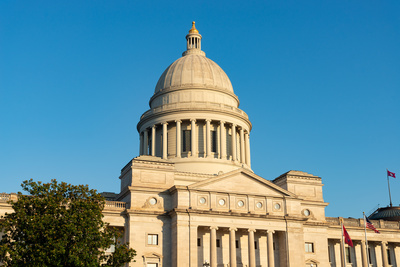
Health Care & Wellness
Alcohol Legislation Takes A New Turn: Canned Cocktails, Direct-to-Consumer Shipping, and More
February 12, 2026 | Kerrie Zabala
November 30, 2023 | Mary Kate Barnauskas

Key Takeaways:
This article is part of our latest series: Major Issue Trends in 2023: State Legislative Recap. In this series, our experts examine the high-level legislative trends they saw in the 2023 state sessions. In addition to discussing the most prevalent issues considered by state policymakers, they explore some of the more surprising emerging trends we noticed, plus what to expect in 2024 for many of these policy areas. The series will be released during November and December, with new articles each week. Explore the full series here, and be sure to sign up for our email list so you don’t miss out on any articles (check the “Blog Posts” box).
With the overturning of Roe v. Wade last June, reproductive rights and abortion policies were a priority issue for several state legislatures during the 2023 session. Across the country, legislators considered a wide variety of legislation addressing reproductive health, with blue states looking to expand access to and protect reproductive rights through shield laws, expansion of insurance coverage for abortions, and privacy laws for reproductive health data and records. On the other hand, red states sought to enact bans on abortions, limits on state funding of abortions, and restrictions on abortion medication.
Lawmakers in Florida, Nebraska, North Carolina, and South Carolina enacted new abortion bans this session. The new laws in Nebraska (NE LB 574) and North Carolina (NC SB 20) ban abortions after 12 weeks, while new laws in Florida (FL SB 300) and South Carolina (SC SB 474) prohibit abortions after 6 weeks of pregnancy. Idaho, where a full abortion ban is currently in place, also passed significant abortion legislation this session. Idaho lawmakers enacted a first-of-its-kind law (ID HB 242) to restrict out-of-state abortions. The law bans individuals from taking minors to get an abortion without parental consent, even if the abortion is obtained in a state where the procedure is legal. This bill adds to the complicated legal landscape forming as a result of a patchwork of laws across states, especially as blue states enact shield laws that provide protections from legal actions taken by states with stricter abortion laws.
The courts have played a key role in the reproductive rights landscape, and we expect this to continue into 2024. Most notably, North Dakota and Iowa enacted legislation as a direct result of judicial rulings this year. In March, North Dakota’s Supreme Court ruled that the state’s trigger ban that was passed in 2007 was unconstitutional and could not be enforced. As a result, the legislature passed a new law (ND SB 2150) to ban most abortions in the state.
Similarly, Iowa passed a 6-week ban (IA HF 732) in a special session called by Governor Kim Reynolds (R) after the Iowa Supreme Court deadlocked on a procedural ruling over a 2018 “fetal heartbeat” ban and declined the governorʼs request to reinstate the law. Not surprisingly, the newly passed ban is currently held up in court after a judge issued a temporary injunction in July.
Looking to 2024, abortion restrictions are currently on hold in Montana, Wyoming, Indiana, and Ohio due to ongoing legal challenges. We anticipate that if the restrictions in these cases are not upheld in court, each of these states’ legislatures would likely act in response to pass new restrictions.
The ballot is shaping up to be a leading strategy to protect access to abortion and establish reproductive rights. Abortion rights went undefeated in the 2022 elections with voters in Kansas, Kentucky, and Montana rejecting anti-abortion measures, and voters in California, Michigan, and Vermont approving measures to establish constitutional rights to abortion. Ohio is currently the only state with abortion on the ballot in 2023, but several states have initiatives started for 2024. Ballot measures to enact protections have been initiated in Arizona, Florida, Maryland, Missouri, New York, and South Dakota.
MultiState’s team is actively identifying and tracking important reproductive health legislation so that businesses and organizations have the information they need to navigate and effectively engage. If your organization would like to further track this and other health care issues, please contact us.

February 12, 2026 | Kerrie Zabala

February 5, 2026 | Geoff Hawkins

January 27, 2026 | Lisa Kimbrough